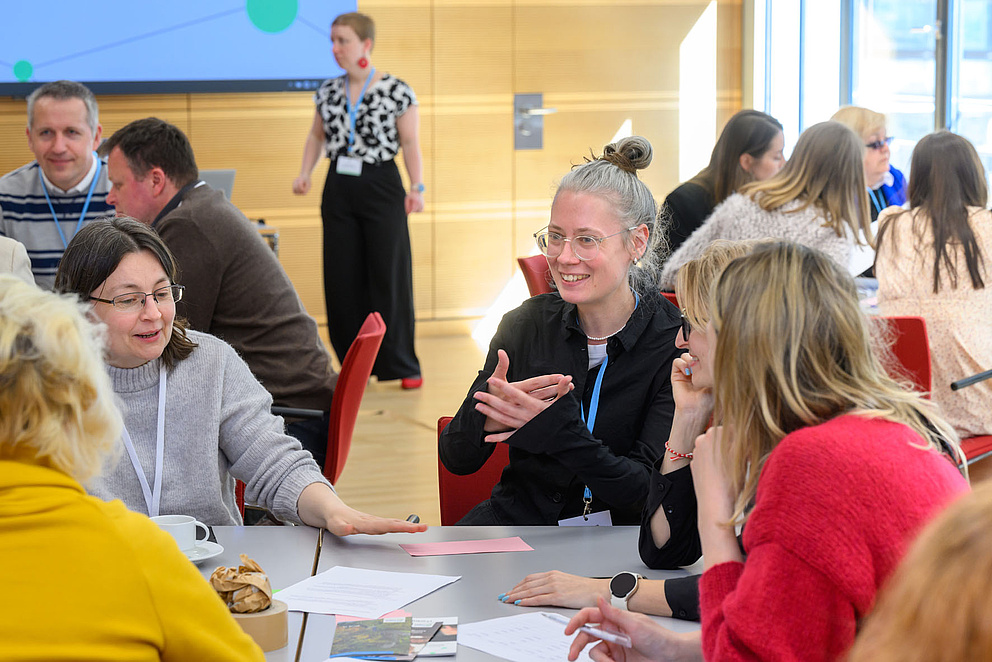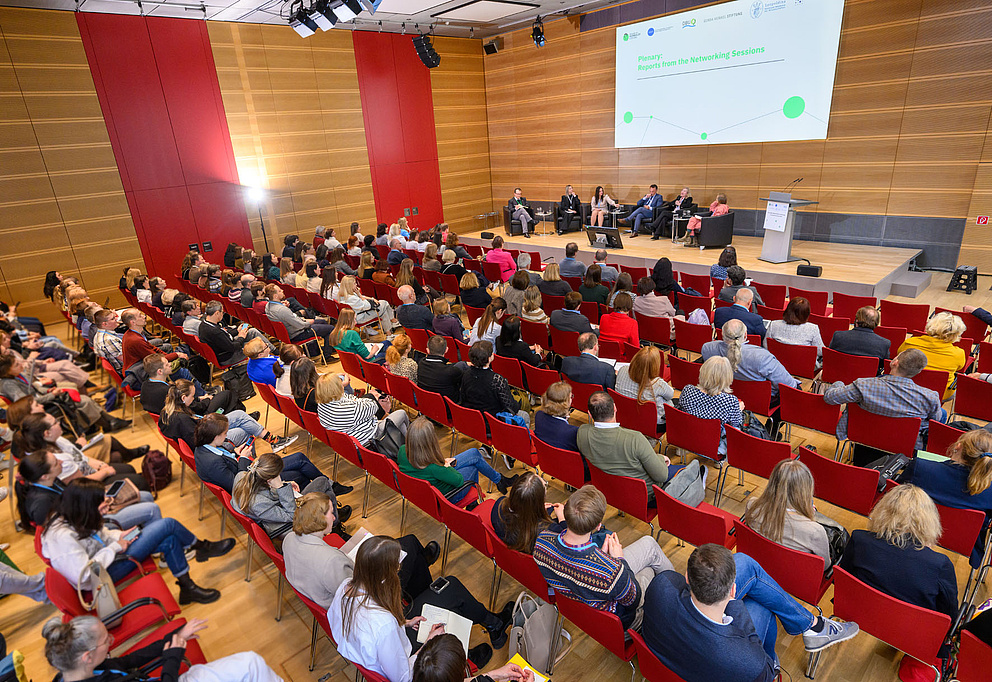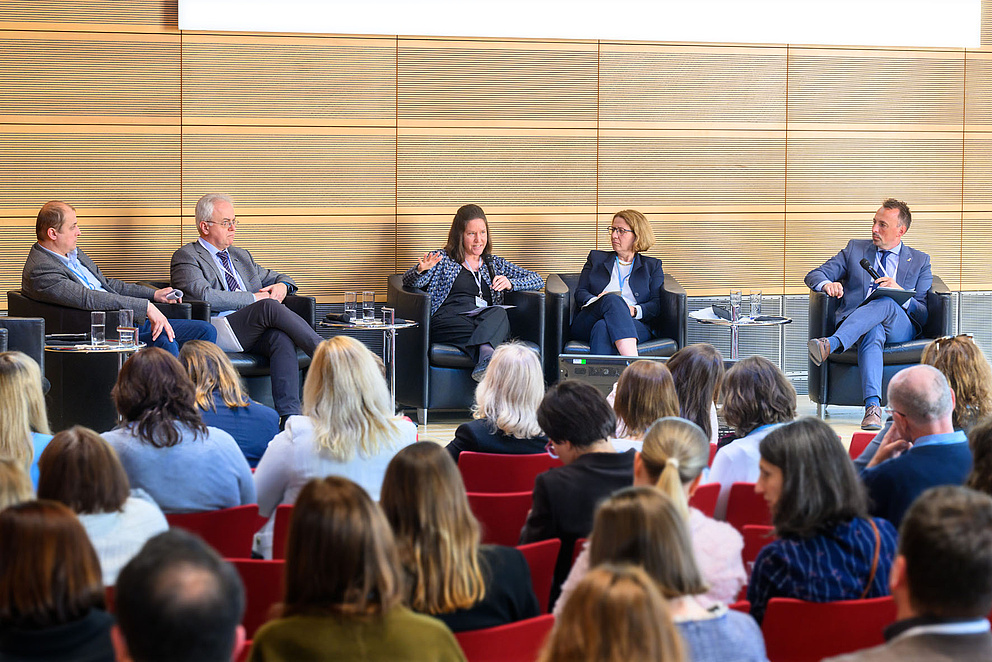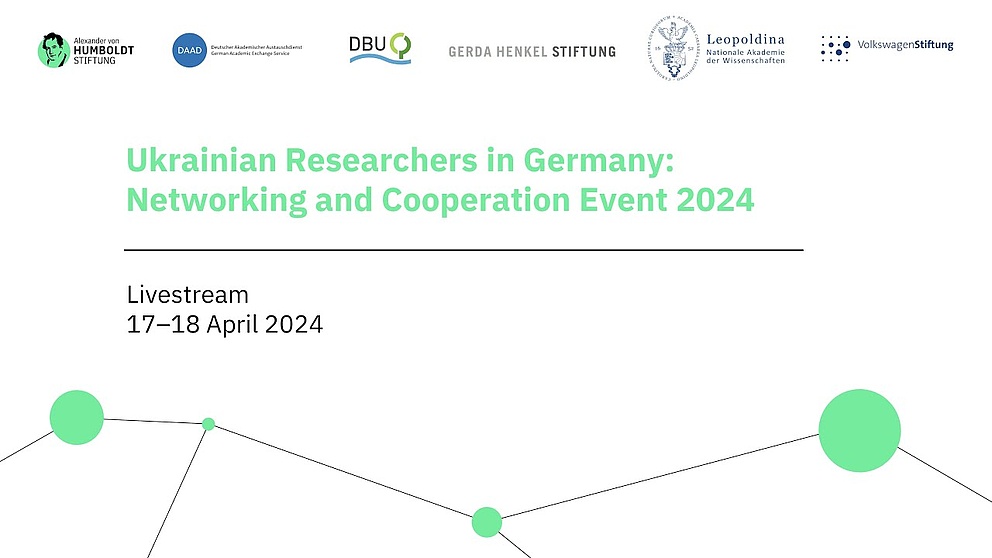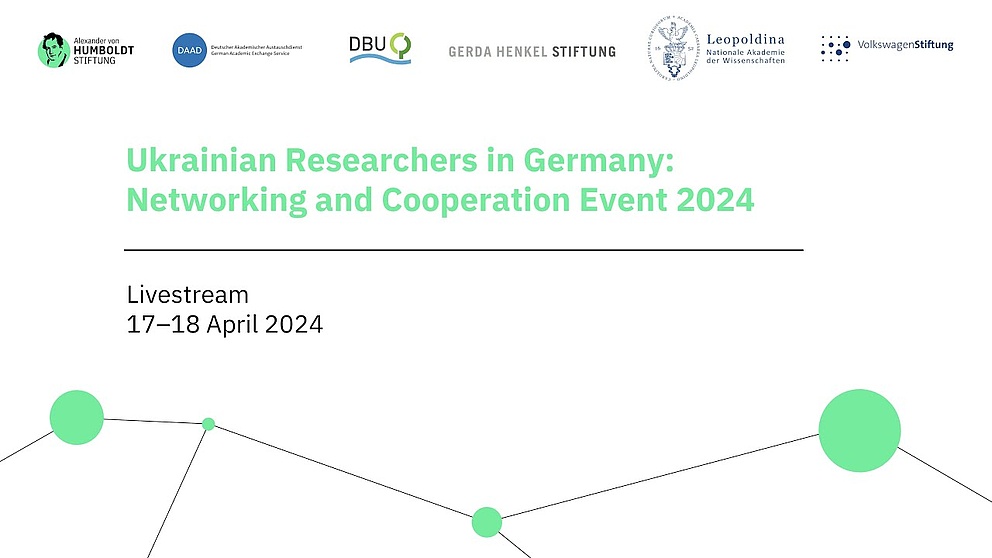
Contact
Press, Communications and Marketing
Tel.: +49 228 833-144
Fax: +49 228 833-441
presse[at]avh.de
More than 1,000 Ukrainian researchers have fled to Germany since the beginning of the Russian war of aggression. For many of them, the future is uncertain because while the war continues, they are confronted with existential issues regarding their professional prospects – in Germany or in their own country. The Ukraine networking meeting, organised by the Alexander von Humboldt Foundation, the DAAD, the German Federal Environmental Foundation, the Gerda Henkel Foundation, the Leopoldina and the Volkswagen Foundation, brought the researchers together with one another as well as with representatives of German funding organisations and politics to share funding experience, sustainable networking paths and career opportunities in the EU.
At the opening of the event, the President of the Humboldt Foundation, Robert Schlögl, emphasised, “We must work on a vision for Ukrainian-German academic collaboration, reflect on the challenges ahead and discuss how Ukraine can become an anchor of scientific productivity that attracts talents from across the globe.” Anke Reiffenstuel, Commissioner for Foreign Science Policy, Foreign Education and Research Policy at the Federal Foreign Office, said, “Academic excellence and international collaboration will be one of the cornerstones not only of reconstruction efforts within Ukraine, but also for the long-term development of its economic and societal wellbeing.” Denys Kurbatov, the Ukraine’s Deputy Minister of Education and Science, also focused on the topic of cooperation. In a video message he expressed his thanks to Germany and the partners in Europe and indicated that Ukraine was developing measures for researchers to return and rebuilding academic structures.
As well as subject-related issues, overarching structural problems were also addressed during the two-day event. In order to drive the integration of Ukrainian researchers in the German and European science system the participants worked on concrete solutions: There should be more networking and more continuing education opportunities for Ukrainian researchers to make them competitive. In terms of soft skills, there is a demand for specialist language skills, more specific knowledge about the presentation of research results and support with EU funding applications, amongst other things. It was also suggested that there should be a greater focus on related career paths and innovative scientific spin-offs.
According to Andriy Luzhetskyy, Professor for Pharmaceutical Biotechnology at Saarland University and head of one of four German-Ukrainian cores of excellence which the Federal Ministry of Education and Research is funding to the tune of 10 million euros, sustainable cooperation between Ukraine and Germany is only possible if both parties benefit. Particularly in the field of cyber security or drug production the Ukraine could be an important partner for German research institutions, Luzhetskyy emphasised.

In 2023, the Humboldt Foundation, together with its partners and participants in the HUMBOLDT4UKRAINE event series, formulated recommendations for the reconstruction of Ukrainian science.
At the same time, it was necessary to turn one’s attention to Ukraine and reconstruction. What could be done to avoid a further brain drain? In this context, greater flexibility in the science system with more online and hybrid teaching could be one approach. This would mean the knowledge of exiled researchers would continue to be accessible at home, the participants stated. Creative approaches were called for – across national boundaries, Oleksyi Kolezhuk, deputy chair of the Scientific Committee of the National Council of Ukraine on Science and Technology Development contributed.
Furthermore, and above all, a change of thinking was required especially with regard to the Ukraine’s contribution to the EU, claimed Susan Stewart, Senior Fellow at the German Institute for International and Security Affairs, “We should ask ourselves how we can even be stronger with the country in the union.” Culture and art also played a role in this. Schamma Schahadat, Professor of Slavic Literary and Cultural Studies at the University of Tübingen, called for the decolonisation of her specialist area and greater visibility for countries like Ukraine, Belarus and Kazakhstan, “We always looked at the eastern European cultures through the Russian lens. The war in Ukraine has shown us that we still have a lot to learn. I am grateful for the expertise our colleagues from Ukraine are contributing.”
On 18 April itself, there was good news to announce: the European Commission is providing an additional 10 million euros for the MSCA4Ukraine Programme. This funding will enable some 50 further researchers who have had to flee from Ukraine, including doctoral candidates and postdocs, to safely continue their research work at host institutions in the EU and other countries associated with Horizon Europe. Moreover, the researchers will have access to training, qualification and career development opportunities. The programme also supports the host institutions as well as fellows who relocate with their families.

